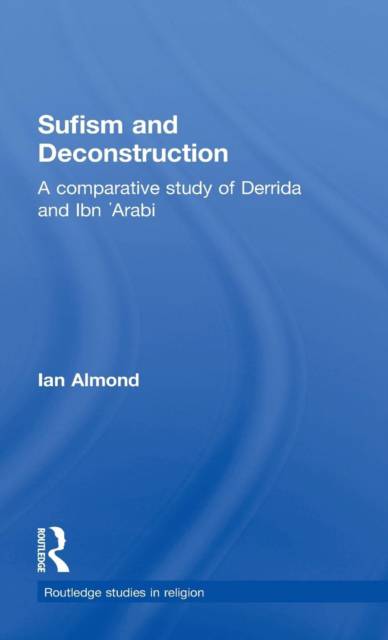
En raison d'une grêve chez bpost, votre commande pourrait être retardée. Vous avez besoin d’un livre rapidement ? Nos magasins vous accueillent à bras ouverts !
- Retrait gratuit dans votre magasin Club
- 7.000.000 titres dans notre catalogue
- Payer en toute sécurité
- Toujours un magasin près de chez vous
En raison de la grêve chez bpost, votre commande pourrait être retardée. Vous avez besoin d’un livre rapidement ? Nos magasins vous accueillent à bras ouverts !
- Retrait gratuit dans votre magasin Club
- 7.000.0000 titres dans notre catalogue
- Payer en toute sécurité
- Toujours un magasin près de chez vous
274,95 €
+ 549 points
Format
Description
Examinung a series of common features in the works of Derrida and the Sufism of Ibn 'Arabi, considered to be one of the most influential figures in Islamic thought, the author addresses the significant absence of attention on the relationship between Islam and Derrida. Presenting a deconstructive perspective on Ibn 'Arabi, the book's features include: * the opposition to systematizing representations of God/reality/the text * a re-emphasis on the radical unthinkability of God and the text * a common conception of rational thought as restrictive, commodifying and ultimately illusory - and a subsequent appraisal of confusion as leading to a higher state of knowledge * a positive belief in the infinate interpretability of the text * a suspicion of represention - and an awareness of its semantic futility, along with a common, 'welcoming' affirmation of openness and errancy towards God and the text. This book will be essential reading for advanced students and academics of Religious studies, Arabic and Islamic studies and those interested in the work of Derrida and Ibn 'Arabi.
Spécifications
Parties prenantes
- Auteur(s) :
- Editeur:
Contenu
- Nombre de pages :
- 174
- Langue:
- Anglais
- Collection :
- Tome:
- n° 6
Caractéristiques
- EAN:
- 9780415320436
- Date de parution :
- 01-04-04
- Format:
- Livre relié
- Format numérique:
- Ongenaaid / garenloos gebonden
- Dimensions :
- 139 mm x 224 mm
- Poids :
- 326 g

Les avis
Nous publions uniquement les avis qui respectent les conditions requises. Consultez nos conditions pour les avis.






